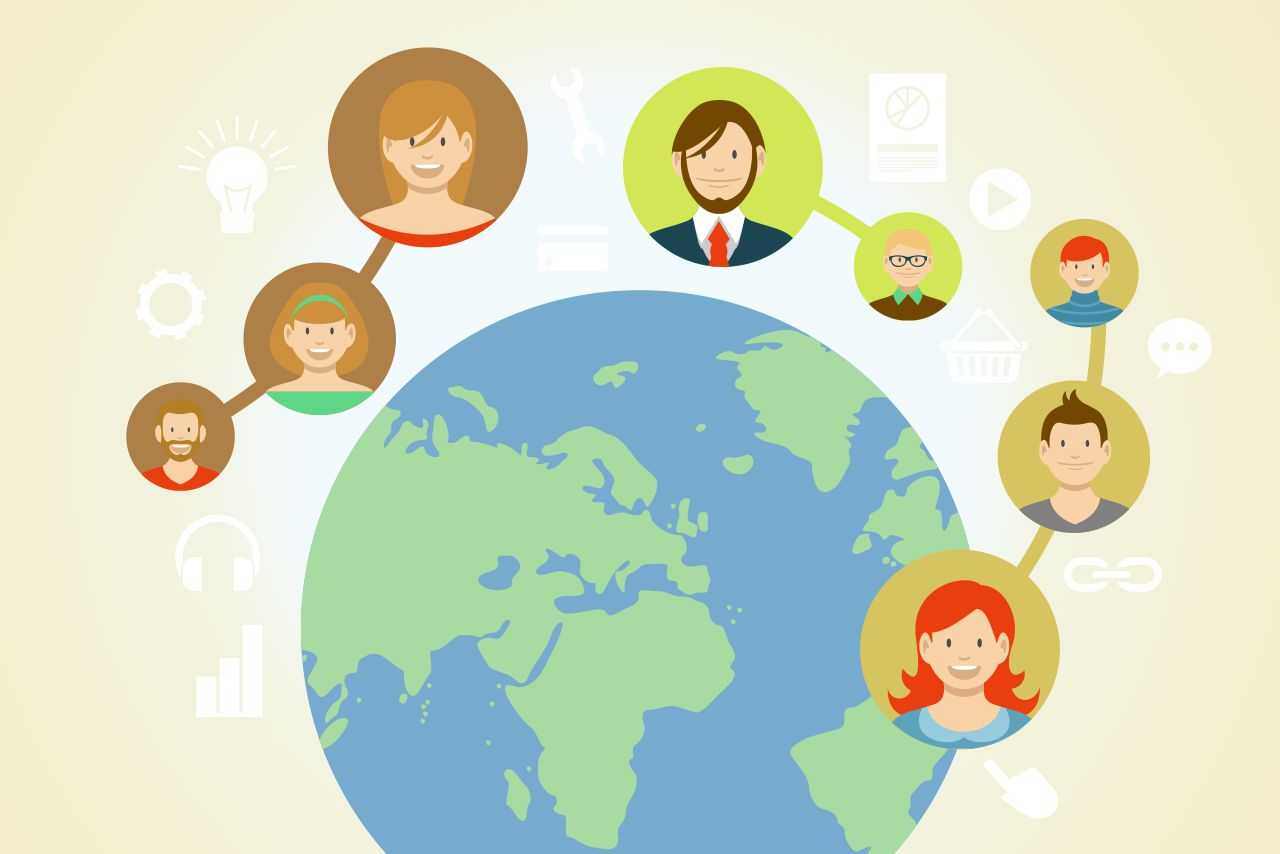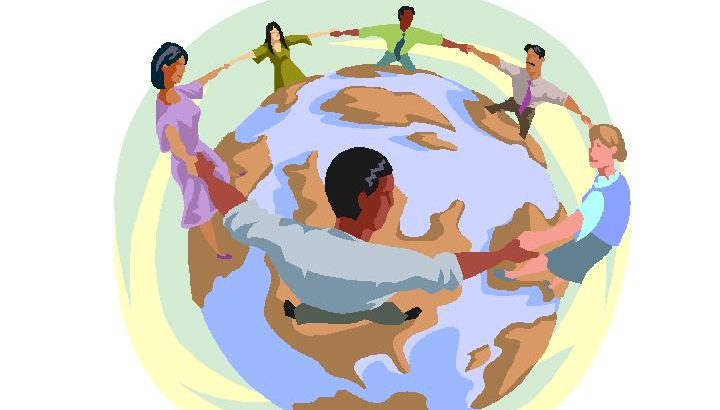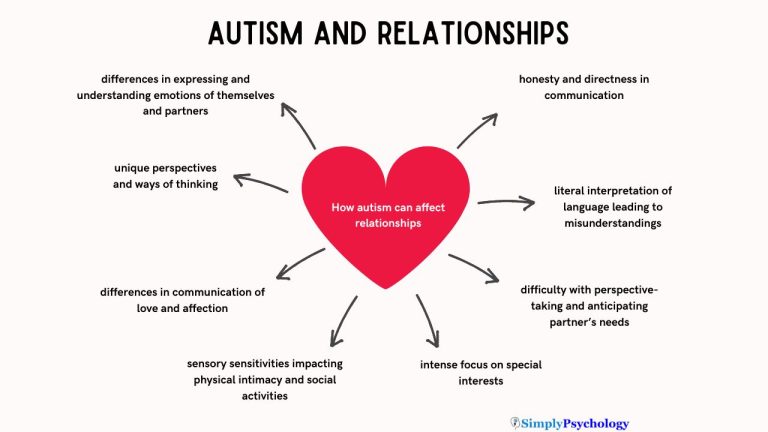How Does Globalization Affect Communication?
Globalization has a profound impact on communication by facilitating the exchange of information across borders and fostering interconnectedness among individuals and organizations worldwide. The integration of technology, such as the internet and social media platforms, has made communication faster, more efficient, and more accessible to a global audience.
As a result, people from different cultures and geographical locations can now connect and communicate in real-time, enabling the sharing of ideas, knowledge, and perspectives. This has not only enhanced business communication, but also stimulated cultural exchange and understanding. However, globalization has also brought challenges, such as language barriers and cultural differences, that need to be overcome for effective global communication to occur.
Globalization’S Impact On Communication Channels
Globalization has significantly impacted communication channels by transforming traditional forms of interaction. With the growth of digital communication platforms, the way people connect and share information has undergone a remarkable shift. This has revolutionized the speed and accessibility of communication on a global scale.
Nowadays, people can easily communicate and collaborate across borders, overcoming geographical limitations. Traditional methods such as letters and landline telephone calls have taken a backseat, as emails, instant messaging, and video conferences have become the norm. Globalization has facilitated the rapid exchange of ideas, fostering cultural understanding and breaking down barriers.
The prevalence of social media further enhances communication by providing platforms for individuals to share thoughts, opinions, and experiences instantly. Overall, globalization has revolutionized communication, making the world more interconnected than ever before. Find the Virtualspeech Media Training Course Review

Credit: www.alert-software.com
Breaking Down Barriers In Communication
Globalization has had a profound impact on communication, breaking down barriers between people and nations. With the eradication of distance in global communication, cultural understanding has become increasingly accessible. People from diverse backgrounds can now easily connect and exchange ideas, fostering a sense of unity and cooperation.
This has opened up new opportunities for collaboration and innovation. Through effective communication, individuals can share their perspectives, experiences, and knowledge, leading to greater cross-cultural understanding. Additionally, globalization has also facilitated the dissemination of information, resulting in a more interconnected world.
As we embrace the advancements in communication technology, it is crucial to harness their power to bridge gaps and promote global dialogue. The constant evolution of communication channels further strengthens the positive impact of globalization on our interconnected world.
Challenging Language Barriers In Global Communication
Globalization has had a substantial impact on communication, challenging language barriers. The rise of multilingual communication tools has enabled individuals and businesses to overcome these barriers. Translation technology, in particular, has played a significant role in bridging the gap and facilitating effective communication across different languages.
These tools have made it easier for people to communicate and collaborate on a global scale, breaking down the limitations of language. By utilizing translation technology, individuals and businesses can now engage in seamless conversations, share ideas, and expand their networks regardless of linguistic differences.
With the ever-increasing interconnectedness of the world, overcoming language barriers through the use of multilingual communication tools has become a necessity for successful global communication.
How Globalization Shapes Business Communication
Globalization has significantly impacted business communication, shaping the way organizations collaborate across borders and time zones. With the world becoming more interconnected, businesses have to adopt effective global communication strategies to thrive in today’s competitive landscape. This means breaking down barriers and finding innovative ways to connect with employees, clients, and partners from different cultures and backgrounds.
Thanks to technological advancements, businesses can now leverage tools like video conferences, instant messaging, and project management software to overcome geographical distances and enable real-time collaboration. Moreover, globalization has also necessitated the need for businesses to develop cultural intelligence and adapt their communication styles to different contexts.
By embracing globalization and incorporating effective communication strategies, businesses can unlock new opportunities, enhance efficiency, and effectively navigate the challenges of a globalized world.
Virtualspeech Business Networking Course may Boost Your Professional Skills.
The Influence Of Globalization On Informal Communication
Globalization has a profound impact on communication, particularly on informal interactions between individuals. The spread of global trends and cultural influences has significantly transformed the way people communicate on a personal level. With globalization, individuals from different countries and regions have greater opportunities to connect and exchange ideas.
This has led to the integration of diverse perspectives, as well as the proliferation of new forms of expression. Moreover, globalization has facilitated the sharing of information and knowledge across borders, enabling people to stay informed about worldwide events and developments.
It has also opened up new avenues for social networking and relationship building, transcending geographical boundaries. In this interconnected world, globalization has undoubtedly revolutionized informal communication, bringing people closer together and fostering a greater understanding of different cultures and perspectives.
The Socio-Cultural Consequences Of Globalization On Communication
Globalization has had a profound impact on communication across different cultures and societies. The socio-cultural consequences of this phenomenon are vast, encompassing both homogenization and diversity in global communication. With the advent of social media, the world has become interconnected and conversations have transcended geographical boundaries.
This has led to the sharing of diverse ideas, opinions, and experiences. However, it has also brought about challenges as it can sometimes result in a loss of cultural uniqueness and the domination of dominant narratives. Social media platforms serve as powerful tools in shaping global conversations and influencing public opinions.
As a result, it is crucial to understand the implications of globalization on communication in order to foster inclusivity, respect diversity, and create meaningful dialogue in a globalized world.
Ethics And Global Communication
Globalization has a significant impact on communication, particularly in cross-cultural settings. Challenges arise in ensuring ethical communication practices across diverse cultures. Cultural sensitivity becomes crucial in navigating the complexities of global communication. It involves understanding the customs, values, and norms of different societies.
By embracing cultural sensitivity, we can build trust, avoid misunderstandings, and foster effective communication. This requires an active effort to learn about the cultural nuances, language variations, and non-verbal cues that may influence communication. Sensitivity to cultural differences helps us avoid unintentional offense and promotes inclusive and respectful interactions.
By addressing and respecting these challenges, we can enhance global communication and foster positive relationships in a globalized world.
Master the Ethical Leadership with VirtualSpeech Business Ethics Course
Frequently Asked Questions Of How Does Globalization Affect Communication?
What Is Globalization In Relation To Communication?
Globalization in relation to communication refers to the interconnectedness and integration of people, ideas, and information across the world. It is the process through which advancements in technology and transportation have made it easier for individuals and organizations to communicate and interact on a global scale.
With the advent of the internet, social media, and other digital platforms, communication barriers have been broken down, allowing for instant and seamless communication regardless of geographical distance. This has facilitated the exchange of ideas, knowledge, and culture on a global level, leading to increased cooperation, understanding, and interdependence among individuals and nations.
Globalization in communication has not only revolutionized how we communicate but has also played a significant role in shaping the modern interconnected world we live in.
How Does Globalization Impact Communication?
Globalization has revolutionized communication by connecting people worldwide. It allows for rapid exchange of information across borders, enabling businesses and individuals to communicate in real time. This has led to increased collaboration, cultural exchange, and global understanding.
Why Is Communication Important In A Globalized World?
Effective communication in a globalized world is vital for successful collaboration, business growth, and understanding between cultures. Clear communication bridges language and cultural barriers, promotes trust and cooperation, and facilitates knowledge sharing and innovation.
How Does Globalization Influence Language Barriers In Communication?
Globalization has both positive and negative effects on language barriers in communication. On one hand, increased global interactions promote language learning and multilingualism. On the other hand, English has become a global lingua franca, potentially marginalizing other languages and cultures.
Conclusion
Globalization has transformed communication by breaking barriers and enabling global interaction. Technological advancements have enhanced connectivity, allowing the exchange of ideas and expanding audiences. However, challenges like language barriers and cultural differences persist. Despite these obstacles, globalization fosters a more interconnected world, promoting understanding and cooperation. Embracing diversity strengthens communication and inclusivity. As globalization continues, developing effective communication skills is essential to bridging gaps and creating a more connected future. VirtualSpeech courses on communication may be the perfect fit for the era of globalization.





